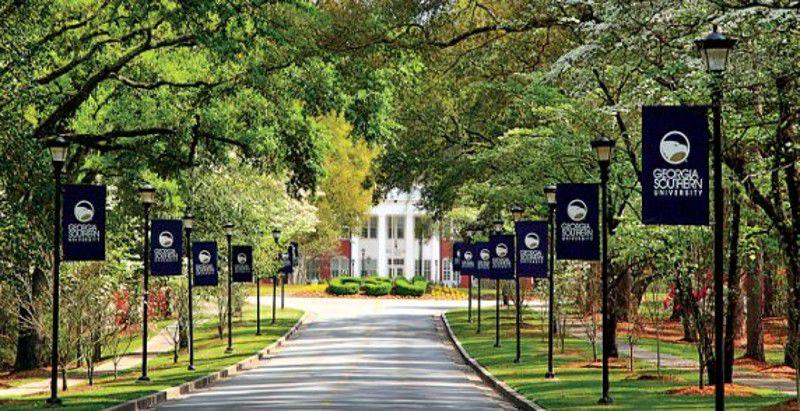2 min
Georgia Southern University’s Business Innovation Group wins international recognition from InBIA
Business Innovation Group team members Dominique Halaby, DPA, Suzanne Hallman and D’Erica Evans accept an award at the InBIA awards ceremony. Georgia Southern University’s Business Innovation Group (BIG) returned home from San Antonio, Texas, with high honors from the International Business Innovation Association (InBIA) during its annual awards ceremony, which recognizes excellence in entrepreneur support. In an awards ceremony held during the 38th annual International Conference on Business Incubation, BIG received four awards including two of the organization’s most prestigious accolades, the Dinah Adkins Award for Non-Technology-Based Entrepreneur Support Organization of the Year, and the Randall M. Whaley Award, which is InBIA’s highest honor. The Statesboro BIG location was named the Mixed-Use Entrepreneur Support Organization of the Year, while the Metter Business Incubator location received the Rural Entrepreneurship Support Organization of the Year. “I am honored that the InBIA recognized our efforts at the Georgia Southern University Business Innovation Group with the highest accolades for the support we offer to entrepreneurs,” said Dominique Halaby, DPA, director of the BIG and associate vice president for innovation. “These awards highlight the hard work the BIG teams put into making our business incubators an incredible resource for budding businesses and furthering our mission to advance the economic growth of our region.” BIG works to build an ecosystem throughout the state of Georgia to help entrepreneurs create, incubate and accelerate their for-profit business enterprises. BIG facilitates access to University resources, creates opportunities for student experiential learning and fosters an environment that supports a growth mindset throughout the state. “Through the InBIA awards program, we celebrate exceptional organizations that catalyze entrepreneurship for their communities,” said President and CEO of InBIA Charles Ross. “Congratulations to the Georgia Southern University Business Innovation Group on their well-deserved recognition. Their commitment to high-quality programming, organizational excellence and community impact is truly inspiring.” InBIA is a global nonprofit empowering entrepreneur support organizations in every U.S. state and in over 30 countries. With over 39 years of experience, InBIA has been a guiding force in providing industry best practices, fostering collaboration, mentorship and the exchange of innovative ideas for entrepreneurs worldwide. InBIA is the go-to organization for business incubators, accelerators, coworking spaces and other entrepreneurship centers. Interested in learning more or looking to talk with Dominique Halaby? Simply click on his icon now to arrange an interview today.








